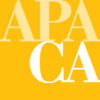
Freeway Rethink: Burying Hospital Curve and Removing the Central Freeway (In-person)
Location: San Francisco
Date and Time: Thursday, November 17. Lunchtime Forum 12:30 to 1:30 p.m.
Even though San Francisco is known as the birthplace of the freeway revolt, the City is still scarred by those freeways that did get built. While significant progress has been made to remove these wounds, the Central Freeway, I-280 north of Cesar Chavez and the Bay Bridge West Approach through SOMA all still impact civic life, depress property values, consume valuable land and impact health. First considered in MTC’s visionary Horizon Program as a transformative project, and with federal Reconnecting Communities funds now available to make detailed studies of freeway options, it may be time for the community to build consensus on finally addressing inequitable freeway placement and returning about 50 acres of land to better uses, including open space, housing, cultural amenities, and the restoration of Mission Creek to provide ecological and recreational benefits. Join us to learn more from the design firms leading this pro-bono effort that could be the City’s signature transformative program
Small Structures: Exhibition Opening (In-person)
Location: San Francisco
Date and Time: Thursday, December 8. 5:30 to 7:30 p.m.
In March 2021, the Biden Administration released the American Jobs Plan, earmarking $213B for “quality” and “affordable” housing, yet the bill lacks specificity on how houses are to be built. Here housing’s problem is split into two: a social one of accessibility and equity, and a material one of wood, metal, and rocks. Architects can play a unique role in bridging abstract policy ambitions to real construction as these connections are made every day in practice. Although accessible housing has been cast in many forms, accessory dwelling units (ADUs) have been a catalyst for including architects in direct policy development. For the first time, cities are directly contracting with architects to provide designs for private property through pre-approved ADU programs. These programs reflect a plurality of ideas, though without rigorous consideration for how the costs of site work, labor, materials, and energy make quality housing sustainable. Small Infrastructures is an exhibition of ADU designs that uses the economics of building assembly as the groundwork for experimentation. Ten architects teaching at Harvard GSD and Berkeley CED consider the overlaps between academia, where cost is often external to conceptual work, and practice, where budgeting is an integral task. Curated by Michelle Chang and Rudabeh Pakravan.
Better Together: Collaborating to Create the Future of Rail (Digital Discourse)
Location: Online
Date and Time: Tuesday, February 14, 2023. Lunchtime Forum 12:30 to 1:30 p.m.
Transportation leaders throughout the San Francisco Bay Area are looking to invest in other modes of transportation, as well as deliver more efficient transportation design, scope and infrastructure. The Metropolitan Transportation Commission has been diligently working on a study that examines how rail agencies throughout the region can work collaboratively on larger rail projects and operations. Join us as we discuss the findings from this new Regional Rail Study with Metropolitan Transportation Commission staff and other transportation partners throughout the region, and learn what these findings mean for the future of rail transportation in the San Francisco Bay Area.

